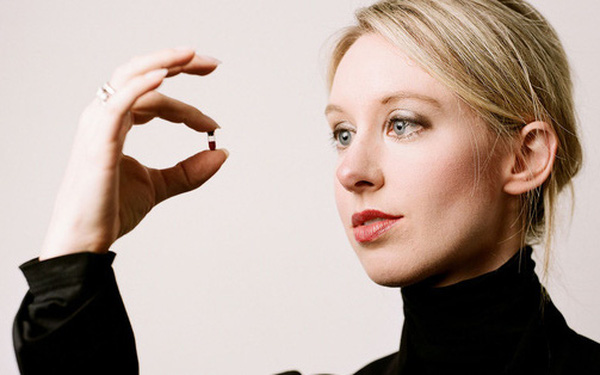Looking back 20 years after the debut of ‘scam boss’ Theranos: The price when trust is misplaced and lessons from ‘selling promises’
- Tram Ho
Nearly 20 years after Theranos launched, CEO Elizabeth Holmes will officially appear in court on August 31, accused of defrauding customers and investors. Now, Silicon Valley is facing public wariness with its plans. However, startup culture has not changed.
John Carreyrou, a journalist who has covered Theranos for six years, said: “People are being more careful with scams. Understandably, that’s the difference between the pre- and post-Theranos eras. However, In many ways, the startup boom hasn’t subsided. I think the right perception isn’t there yet.”

A special moment in Silicon Valley history
Theranos was founded in 2003 by Elizabeth Holmes – a Stanford University student then 19 years old. Holmes promises to upgrade the testing industry with a special technology, giving results from just a small drop of blood. The company quickly peaked 10 years later, valued at $10 billion before collapsing.
“The rise and fall of Theranos reflects a very special moment in Silicon Valley’s history,” said Margaret O’Mara, a historian at the University of Washington.
At that time, the tech bubble in Silicon Valley was being inflated by young founders, welcoming the success of startups with “humble” beginnings that could change the world. For example, Mark Zuckerberg founded Facebook in his dorm room or Jeff Bezos created Amazon in his garage.
At the same time, some investors became discouraged because the successes were focused solely on social platforms. Billionaire investor Peter Thiel famously said in 2013: “We wanted flying cars, but we had a 140-character sharing platform.”
“Then we have Theranos,” said O’Mara. “They weren’t creating a platform, but ‘selling the promise’ that would change the medical industry. Holmes then aimed for an experience that many people don’t have much of,” O’Mara said. fancy, it’s a blood test. This has attracted a lot of people.”
Also, another story that makes Theranos special. While the more famous billionaires like Bezos, Zuckerberg or Bill Gates have great recognition, women are rarely present.
In other words, the time is ripe for a young female leader to become the center of attention. O’Mara commented: “This is a talented, beautiful young woman, dubbed the female version of Steve Jobs. It’s a very compelling story that everyone wants to believe.”
Has Silicon Valley changed after Theranos incident?
According to O’Mara, as Holmes wields more power, technology companies are still seen as innovative companies that bring great benefits to society. After events like the Arab Spring and Occupy Wall Street, many companies have declared that they are making the world a better place, and most believe in that promise.
A decade after Theranos crash, the startup environment has changed dramatically. The revelations from the Cambridge Analytica scandal have severely damaged trust in big tech companies. Lawmakers and the public are questioning the monopoly these businesses have.
David Grenache, former president of the American Society of Clinical Chemistry and now chief scientific officer of TriCore Laboratories, said: “Theranos has helped raise awareness for more careful consideration of visionary claims. futile and a reminder before trusting in a technology that doesn’t really exist.”
While scrutiny is essential for startups in this sector, the demise of Theranos has affected many medical technology companies. Many potential companies developing diagnostic technology quickly face investor skepticism, Grenache said.
But, according to John Ioannidis, a professor of medicine at Stanford University, one of the first to voice doubt Theranos, even in the current context, many medical testing companies in Silicon Valley still have problems. must make the same mistake.
Like Theranos, many companies still operate “anonymously,” continuing to raise capital without providing legal proof of their products, according to 2019 research by Ioannidis. Of the 18 unicorns in the field, more than half don’t have “reliable citations” for the products they’re working on.
Another problem, Ioannidis points out, is that many of the companies in this sector operate in a “gray zone,” because the technology they sell is not classified as medical. While a vaccine or drug would require a rigorous approval process from the FDA, technologies such as Theranos offer may be accessible to the public without regulatory oversight.
Source : Genk
